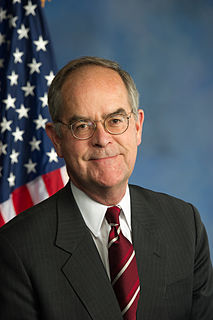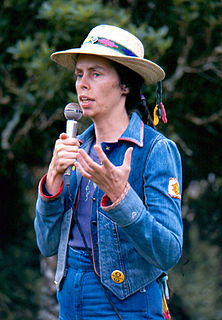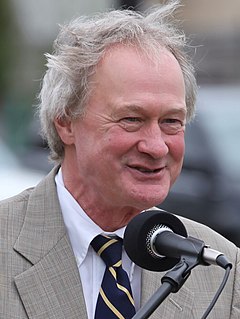A Quote by Nawal El Saadawi
The medical profession [in Egypt] is also very commercial. Health is not given to the poor. You know, if you have money, you have medical care; if you do not, then you are in trouble. I was not ready at all to build my economic security on the diseases of people, on suffering, especially of women and children. So, in a way, I rebelled against it.
Related Quotes
We don't want to hurt anybody, kill anybody, build any prisons, or build police. We want to make it unnecessary for people to steal - so they'll have access to medical care, health care, decent housing, all people, all over the world. As long as you don't share your resources, you are going to have trouble
The efforts of the medical profession in the US to control:...its...job it proposes to monopolize. It has been carrying on a vigorous campaign all over the country against new methods and schools of healing because it wants the business...I have watched this medical profession for a long time and it bears watching.
What would be better, that people build big houses thinking that they'll make capital gains or that they send their children to medical school and they do research on curing diseases? When you put it that way, it seems obvious. There has developed a sense of personal worth that's tied to one's house.
I think from an economics point of view, it is important that the money that is spent for health care is well spent - what is the cost-effectiveness of the money that is used? - because if the money is well spent, many people benefit from the system, and it is also a good market for finding employment. I do not see a reason why we should limit ourselves when it comes to very qualified and humane employment opportunities if there is no waste and if there is medical need.
Nothing in medical literature today communicates the idea that women's bodies are well-designed for birth. Ignorance of the capacities of women's bodies can flourish and quickly spread into the popular culture when the medical profession is unable to distinguish between ancient wisdom and superstitious belief.
The truth is, the vast majority of medical care for lower income people in America is shitty. If you go to a free clinic to receive any form of care, the majority of those will be overcrowded with nurses who are tired because they have to work with so many people. We are not a country that invests public money into taking care of poor people, so we usually rely on clinics with very overburdened and underpaid staff.
It is taken for granted that workers should receive their pay partly in kind, in the form of medical care provided by the employer. How come? Why single out medical care? Surely food is no less essential to life than medical care. Why is it not at least as logical for workers to be required to buy their food at the company store as to be required to buy their medical care at the company store?





































